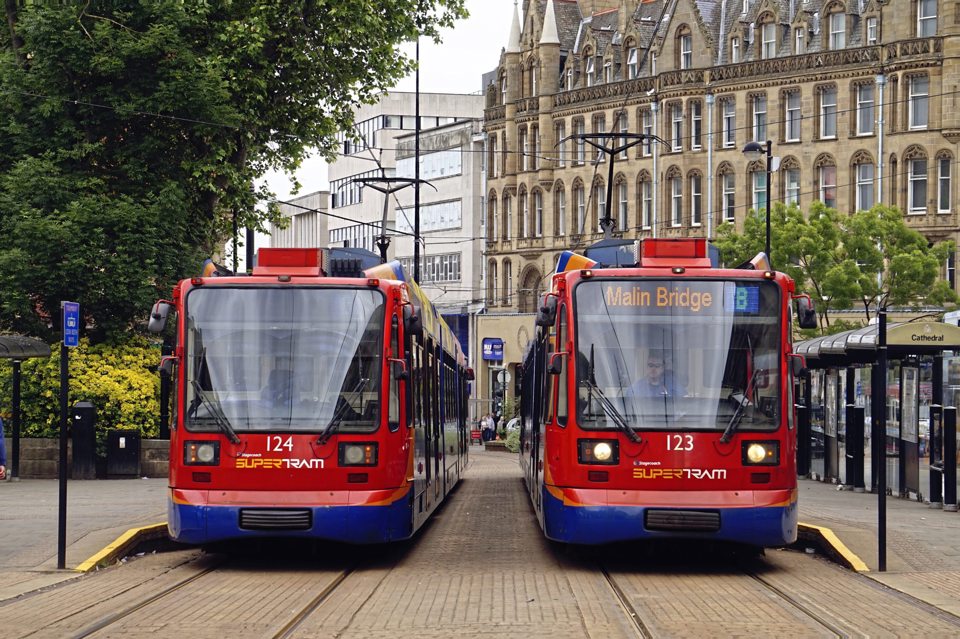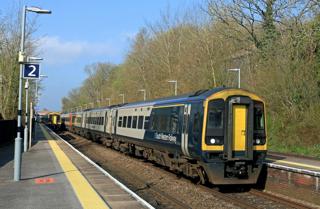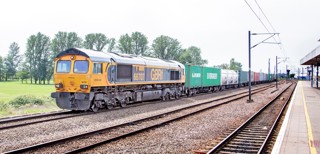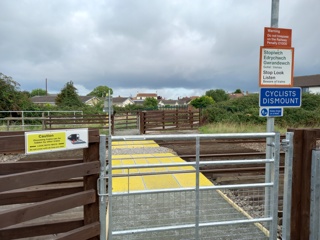Stagecoach was once a big hitter of the rail industry but recently surrendered its last franchise. Howard Johnston charts its rise, fall and return to buses
Remember Stagecoach Group? Only ten years ago, its rate of acquisition of UK rail and tramway operating franchises had been so rapid that many may have wondered how long it would be before it ran the lot.
Stagecoach was once a big hitter of the rail industry but recently surrendered its last franchise. Howard Johnston charts its rise, fall and return to buses
Remember Stagecoach Group? Only ten years ago, its rate of acquisition of UK rail and tramway operating franchises had been so rapid that many may have wondered how long it would be before it ran the lot.
Now it has none of them. Stagecoach’s near-billionaire founders have taken a back seat after its takeover by a German conglomerate. And while still immensely successful, with 24,000 employees and a turnover of almost £1.4 billion last year, Stagecoach is squarely back where it began - on rubber tyres.
It departed the ‘steel wheels on steel rails’ scene with a whimper on Friday March 22, when it handed in the keys of South Yorkshire Supertram, marking the end of a 27-year operating contract.
The South Yorkshire Mayoral Combined Authority was jubilant at getting back control, and immediately announced bold plans to reverse years of what it has described as serious under-investment. It also speaks passionately about route expansion.
Stagecoach’s rail activities are therefore just a chapter in a history book. The distinctive red, white and blue livery, with a bright ornate stripe - a brash symbol of what privatisation seemed to represent in the 1990s - survives only on units that current operators have not yet got around to repainting.
Stagecoach enjoyed a meteoric expansion as one of the main beneficiaries of the 1985 Transport Act, which under Conservative Transport Minister Nicholas Ridley deregulated the bus industry to eliminate public subsidy. To the dismay of local authorities who were obliged to sell their cosy municipal operations, it was perfectly placed to move in.
How quickly could it conquer the world? Stagecoach’s energetic commercial tactics generated its fair share of complaints to the Office of Fair Trade and other government departments. It was criticised for its behaviour over acquisitions and mergers, alleged anti-competitive practices by often charging low fares to put rivals out of business, poaching staff, and creating alleged monopolies.
Yet Stagecoach is truly a rags to riches story. Ann Gloag and her late (ex-)husband Robin set up a small coach and minibus hire vehicle business in Perth in the mid-1970s, and were joined by Ann’s accountant brother Brian Souter.
They took full advantage of the deregulation of the UK bus industry, and it was not long before it had the cash and foresight to pick up companies that had already been the subject of management and employee buyouts.
Rail was the next target. The big talk was of private sector intervention, and many may recall one of the very first visual signs of change, when six Mk 2d Second Open coaches were outshopped from BREL’s Derby Litchurch Lane facility in startling Stagecoach livery.
They were to provide seated accommodation on Aberdeen-London services, with the inaugural run taking place on May 11 1992 - immaculately timed to be the day after the Queen’s Speech to Parliament announcing privatisation. But patronage was poor, and the service was dropped within months, with the coaches returned to their InterCity colours.
However, this proved to be a minor distraction. In 1995, Stagecoach became the first company to win a full franchise - and South West Trains was also the biggest.
Then, by purchasing train leasing company Porterbrook for £825 million, it found itself in control of a third of the passenger fleet, while taking a 49% stake in Richard Branson’s Virgin Trains also gave it control of the West Coast Main Line and CrossCountry.
It took an expert to keep track of Stagecoach’s inexorable expansion, with its bus business growing at the same rapid pace.
It was now worldwide - across Europe and into North America, Australia and New Zealand, and also China. New vehicles were often ordered in hundreds at a time.
Purchases and sales of businesses became a common feature of company activity. And one example of the profits available was the almost doubling of its outlay with the sale of Porterbrook to a bank in 2000 for £1.44bn.
Moving forward to 2007, the partnership of Stagecoach and Sir Richard Branson’s Virgin business secured the East Midlands franchise (the former Midland Mainline and Central Trains operations).
Stagecoach had already acquired South Yorkshire Supertram, and in 2007 also acquired Manchester Metrolink, although it sold the latter halfway through its ten-year term to French company RATP.
Then, suddenly, the brakes came on. Stagecoach realised that it had overbid for the Virgin Trains East Coast franchise (it had a 90% shareholding). It began services in March 2015, but ran out of energy after just less than three years because it could not afford its payments to the government, which took back control. South West Trains was also lost to the FirstGroup and MTR consortium in March 2017.
Far worse was to come in April 2019, when the Department for Transport disqualified Stagecoach from rebidding for its existing West Coast and East Midlands contracts (and also South Eastern), because it had failed to comply with the application rules (including staff pensions), and tried to dictate its own terms.
Despite legal challenges, the DfT won, and Stagecoach was out in the cold. This marked the end of its rail operations, with the solitary exception of South Yorkshire Supertram.
Stagecoach has never stood still, however, and at the beginning of the new decade its independence was up for review.
A courtship with old rival National Express for a merger seemed likely, but this fell through in December 2021 in favour of a £595m deal with German infrastructure investor DWS, which is owned by Deutsche Bank. The deal was signed the following May.
Chairman Raymond O’Toole said at the time: “Stagecoach’s strength has always been its ability to constantly evolve and to use its energy and entrepreneurial flair to capitalise on new opportunities.”
Stagecoach has certainly seen it all since it started by running coach excursions with Brian Souter at the wheel and Ann Gloag anecdotally making the sandwiches.
It will always be known as a business that got rich quickly, dabbled with trains, and tried to become a global giant. Now it’s gone back on the road.
Termination of contract unshackles Supertram
In 1997, Stagecoach picked up its 27-year operating contract for South Yorkshire Supertram for the giveaway price of just £1.15 million (the government had valued it at £80m), to help pay off some of the debts incurred in building the system, which had cost £241m to build between 1991-95.
Stagecoach’s contract straightforwardly only covered operations and day-to-day maintenance of the system, which was virtually brand new and so needed little attention.
But it was inevitable that Supertram would soon need some investment to prevent decline, and public money had to be found for track replacement and the upgrading of tram stops, sub-stations, and traction and control systems. Talk of extensions had to go on the back burner, and it was suggested more than once that Stagecoach would walk away because it was not getting a worthwhile return.
Until recently, there was actually a serious ‘do nothing’ proposal on the table to progressively abandon the tramway between 2027-42.
This obviously now won’t happen. But now that it is back in control, South Yorkshire Mayoral Combined Authority still faces a host of challenges with its arm’s length, wholly owned subsidiary registered as South Yorkshire Future Trams Limited (SYFTL).
One of these challenges is that it cannot enforce performance targets on itself. And on his first working day after his re-election as Mayor of South Yorkshire, Oliver Coppard put Supertram at the centre of his commitment to roll out an integrated public transport system by 2028, which is when his current term of office will end.
Coppard has a lot on his plate. Firstly, Supertram loses money, and while a £6m prop-up has been promised, he has to turn the business round by reducing operating costs and increasing revenues. He also has to ensure that the transition from Stagecoach is a smooth one operationally.
The long-awaited extensions rely on securing investment to support economic growth, growing patronage to hit targets for reducing car journeys and hitting climate targets, and improving air quality.
Plans for new tram lines (plus bus reform and the reopening of Sheffield/Doncaster Airport) will be set out by the end of next year - first with public consultation, and then a submission to government.
Despite its general popularity, Supertram has not moved forward very much since it opened in 1994, and Barnsley and Doncaster ratepayers continue to make their annual subsidy payments even though trams do not run into their territory.
Coppard acknowledges that a lack of investment has meant a poor experience for passengers: “For 30 years, we’ve seen and felt the consequences of our public transport network being run by private operators who have failed to run our buses and trams in the interests of our communities. We are now starting to dismantle that system.”
Now, opportunities are being explored to run tram-trains between Sheffield and Stocksbridge, and along the Barrow Hill line between Chesterfield and Sheffield. Options for additional connections across the city include reaching hospitals (as happens in Nottingham and possibly soon Edinburgh).
SYMCA faces some big bills, including an estimated £55m for track renewal over the next eight years.
The Siemens tram fleet is also approaching the end of its economic life. One last refurbishment will be completed by March 2027, after which it is hoped that government funding will be available for a new fleet of 28 trams to be in service by 2032.
Login to continue reading
Or register with RAIL to keep up-to-date with the latest news, insight and opinion.



















Login to comment
Comments
No comments have been made yet.